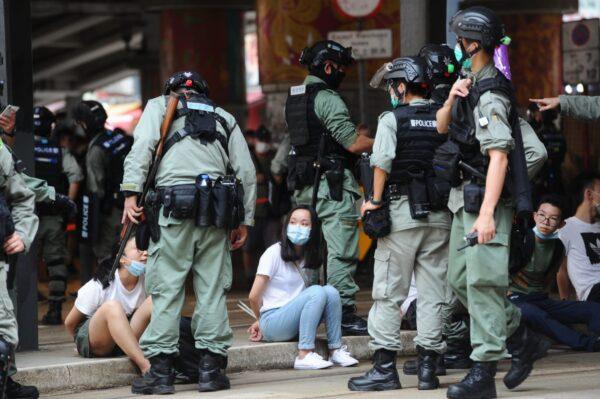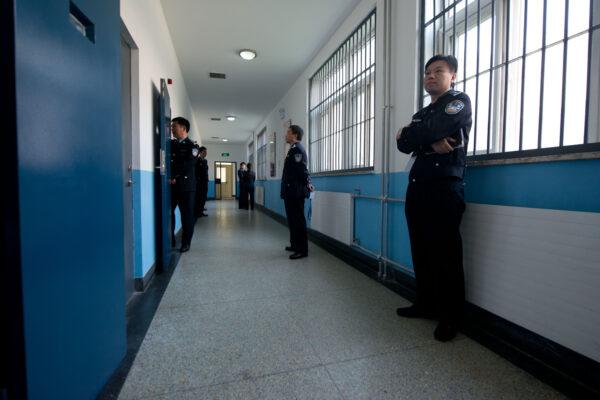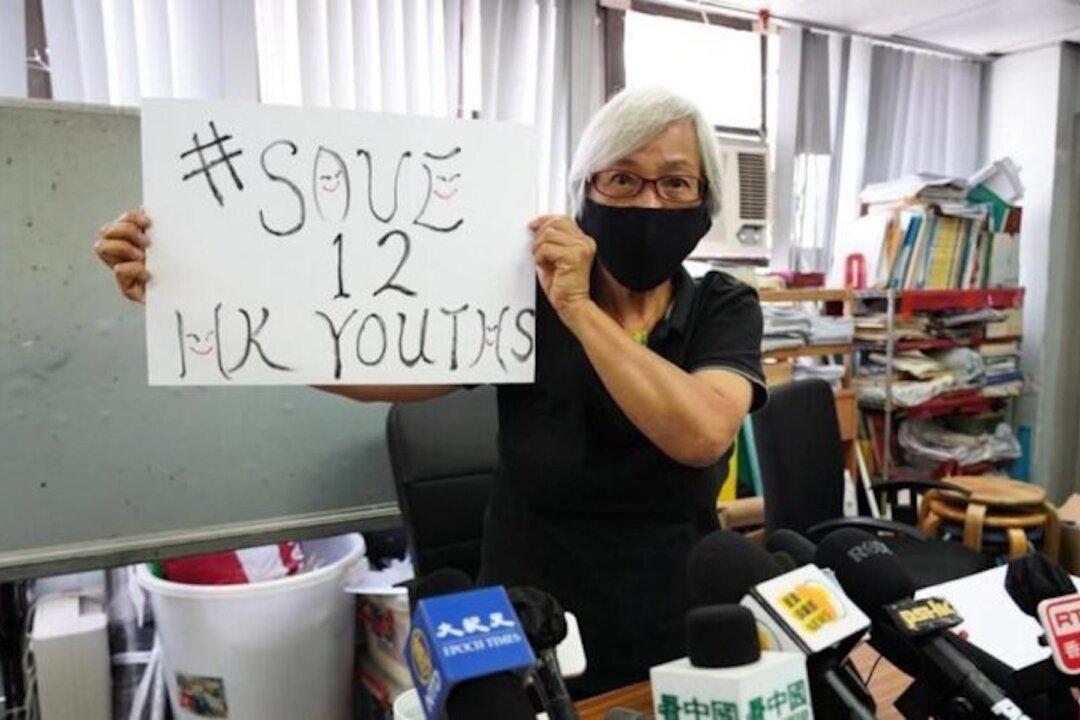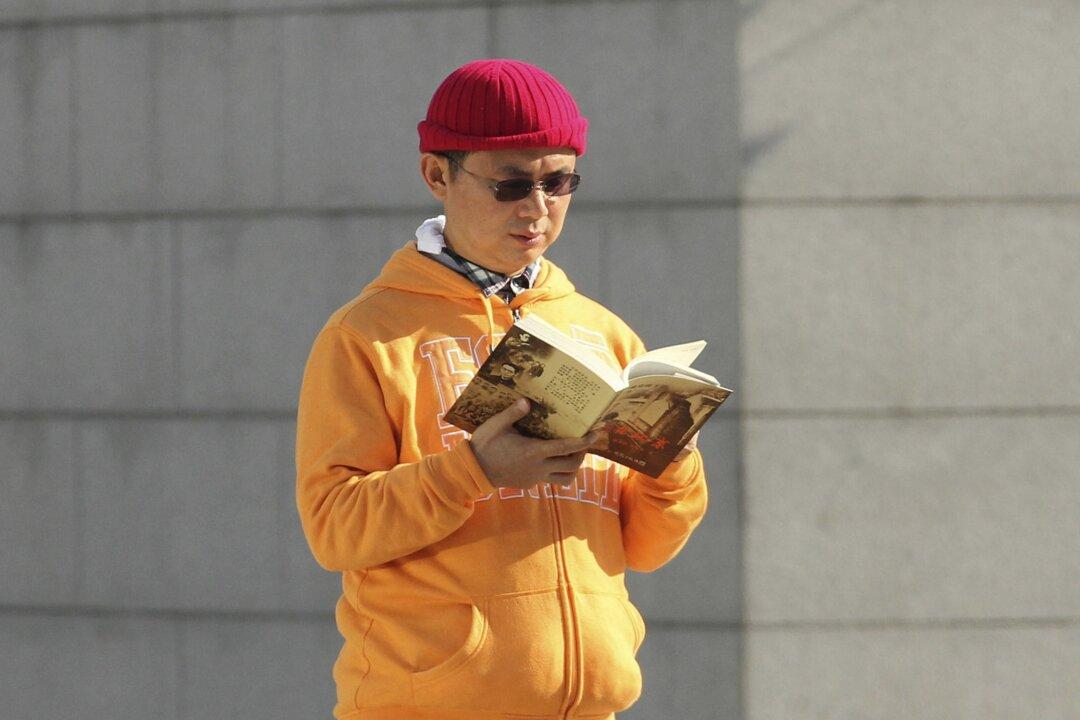Alexandra Wong, a 64-year-old protester and Hong Kong native, was detained by Chinese authorities in Shenzhen city for taking part in the anti-extradition bill protests in Hong Kong last year. Within 14 months, she was sent to detention centers and was placed under house arrest. After her release, Wong returned to Hong Kong in early October.
Following a two-week quarantine, Wong held a press conference on Oct. 17, along with Eddie Chu, a former member of the Legislative Council (LegCo) of Hong Kong, and Fernando Cheung, current member of LegCo. Wong shared her story about being detained by mainland police for taking part in anti-extradition bill protests in Hong Kong in 2019.

Wong was transferred to the local police station where she waited for seven hours before being interrogated by four different police teams. She said all their questions centered around her anti-extradition bill protest activities in Hong Kong. They showed photos that they took of her at demonstrations. They inquired about her connections to certain organizations and individuals, including members of LegCo. Wong said the interrogation lasted for 100 hours and she barely slept for the first two days and two nights.
The police also searched her home and took some personal belongings that they would use as so-called evidence to incriminate her.
Wong was ordered to sign a document, stating that she agreed to a 15-day administrative detention and that she would not appeal to a higher court. She was then transferred to the Futian District Detention Center in Shenzhen.
At the end of her detention, Wong received a document, but it wasn’t a release form as she had expected. Instead, it was a document that stated she was being charged for an unspecified crime.
Wong asked the police about the criminal charge, but was only told that she did not have the right to know.
After asking repeatedly, the police finally said that her crime was “picking quarrels and provoking trouble”—a vague charge often used to detain dissidents in China.
Sixteen Inmates Share a Tiny Cell
The conditions were inhumane at the Shenzhen Third Detention Center, according to Wong’s account.Wong shared a prison cell that was less than 200 square feet with 15 other inmates. There was a bathroom in the center of the room that was less than 100 square feet, and was equipped with two extra large video cameras that faced the shower. The inmates had no privacy. They were also monitored by male prison guards.
The food was monotonous and unappetizing.
Under such stressful conditions, Wong’s health began to deteriorate and she suffered from high blood pressure.

Forced to Make a Video and Look Happy
Before being released, Wong had to take a five-day “patriotic trip” to Shangluo city, Shaanxi Province, where she once did volunteer work for a poverty relief program in 2004. She also had to sign a “statement of repentance.”Wong was forced to appear in a short video, saying that she had not been mistreated by Chinese authorities. She promised to stop joining Hong Kong demonstrations and not to hold up the British national flag (as she usually did at protest sites), nor contact journalists. She was forced to hold the Chinese flag while smiling in front of the camera.
Upon her release, Wong noted that her alleged crime of “picking quarrels and provoking trouble” was not documented in the release forms.
Fight to the End for Hong Kong’s Freedoms
At the press conference, Wong said that she would fight to the end for Hong Kong’s democracy and freedoms.“I’m a Hong Kong local. I was born here and grew up here. This is my hometown. I'd rather die on this soil if I have to,” she added.
Eddie Chu said that Wong has always been a peaceful protester and believes that her rights as a Hong Kong citizen were seriously violated by authorities in the mainland.
He also said it was right for Hongkongers to stand up against the extradition bill.
If the bill was passed, it would have allowed Beijing to seek extradition of anyone wanted by the Chinese regime. Hongkongers and human rights activists fear that this would permit China’s opaque judicial system to charge dissidents with impunity.





